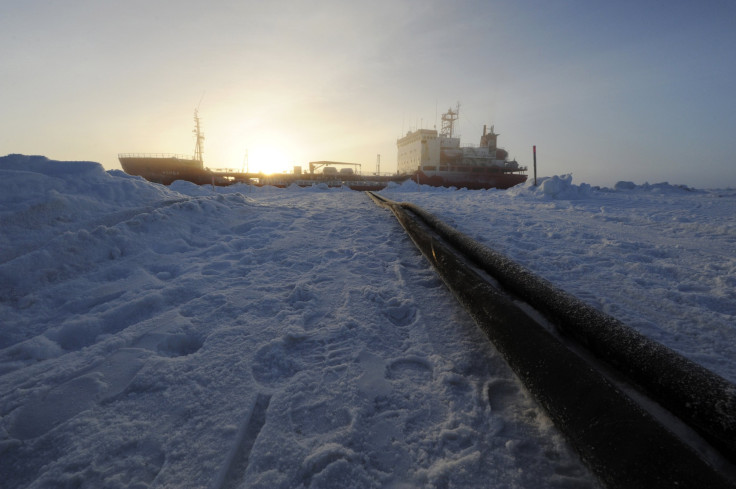Russian Minister Calls For Melting More Arctic Sea Ice To Increase Oil Development: Report

The Russian government said Thursday it wanted oil companies to gain greater access to Arctic oil reserves, calling for the melting of more Arctic sea ice to make the process easier.
“I believe that it is necessary to expand the access of companies to the shelf,” Deputy Prime Minister Alexander Khloponin was quoted saying by state media, Forbes reported. He had reportedly said earlier that the government would need to impose sanctions on development in Russia’s Arctic shelf, but did not specify what the sanctions would be and whether they would include any environmental measures.
The areas north of the Arctic Circle are thought to hold at least 90 billion barrels of oil in undiscovered but exploitable reserves, according to the U.S. Geological Survey. That would put it at about 13 percent of the world’s undiscovered oil reserves. The region is also estimated to contain 1,670 trillion cubic feet of recoverable natural gas and 44 billion barrels of recoverable liquid natural gas.
Russia holds the lion’s share of these reserves, with 41 percent of total Arctic oil reserves and 70 percent of Arctic gas, according to a report from Statistics Norway.
However, current Russian law allows only limited oil drilling in the area, and falling oil prices along with Western sanctions have made shouldering the costs of operating in the hostile Arctic environment less attractive. A partnership between Russian state-run Rosneft and ExxonMobil for developments in the Kara Sea was halted in January after the sanctions took effect. Oil reserves in the Kara Sea are thought to be comparable to those in Saudi Arabia.
Russia is among other nations -- including the United States, Canada, Norway and Denmark -- that have been staking their claims to the enormous energy reserves in the Arctic. Moscow announced earlier this month that it would develop a “self-sufficient” standing military force to protect its interests in the region at a time when its relations with the West are at the most frigid in decades.
The annual coverage from Arctic sea ice has been dropping precipitously, with March seeing the lowest annual winter ice coverage on record. A NASA study found that the thickest sections of the ice cap are melting at a faster rate than the thinner sections along its edges.
© Copyright IBTimes 2025. All rights reserved.





















